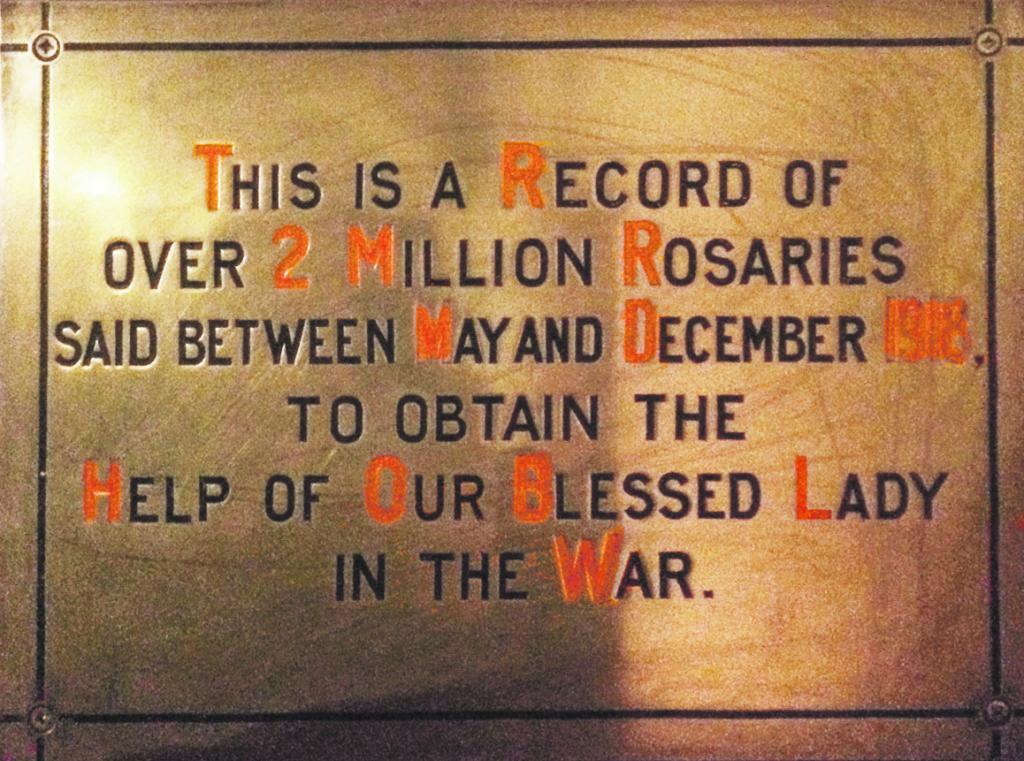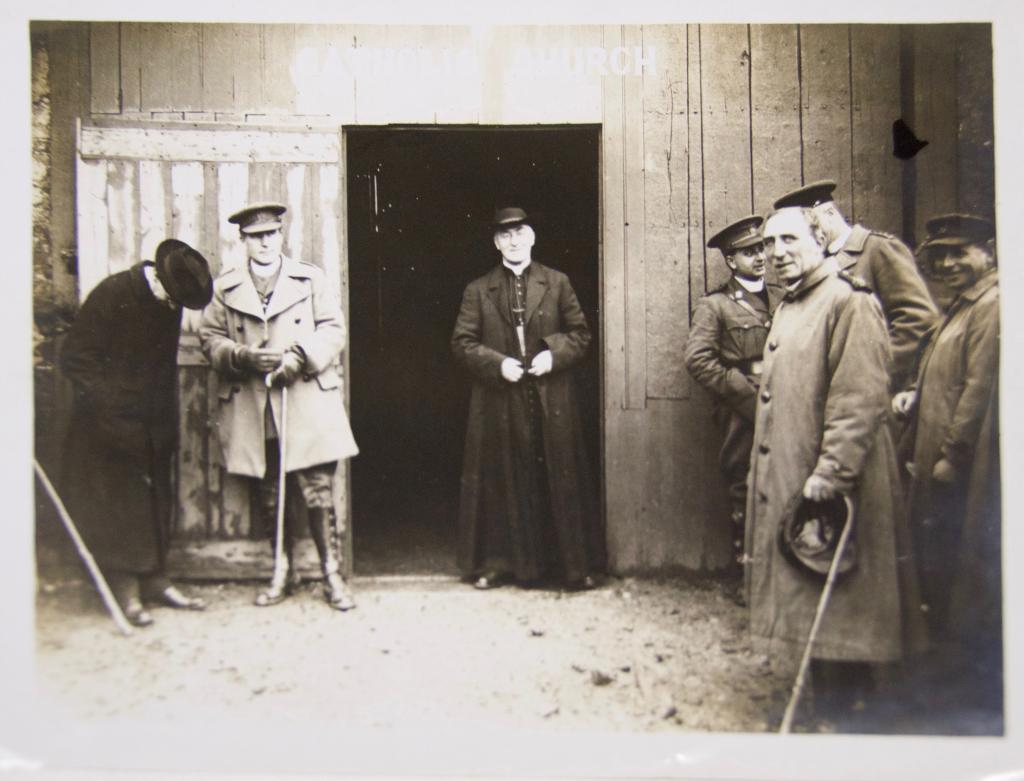by Fr Nicholas Schofield, Diocesan Archivist
‘The days of warfare,’ wrote Cardinal Bourne in the Westminster Cathedral Chronicle of December 1918, ‘are gradually changing into the days of peace. The constant peril from the skies that for so long haunted even those who were far removed from the battle-front is already a fading memory.’ Soldiers were returning from the Front, hospitals were slowly closing and ‘men and women, millions in number, whose whole being has been absorbed by the needs of war must accustom themselves to think only of the things of peace.’
News of the Armistice a hundred years ago and the ceasing of hostilities at the eleventh hour of the eleventh day of the eleventh month brought much joy across the world. At St Edmund’s College, Ware, the President wrote in the Diary: ‘about midday the news arrived of the signing of the Armistice putting an end to the Great War. Studies were immediately suspended. In the evening, all the shades were removed from the gas lighting in church and for the first time for years the church was lit up as in pre-war days. At Benediction a Solemn Te Deum was enthusiastically sung. At the end of the Adoremus all stood and sang God save the King.’ A play day was declared a few days later; in the evening ‘a huge bonfire was lit’ and ‘a patriotic concert’ organised.
But the sense of loss watered down some of these scenes of joy. Many churches organised Requiem Masses for the fallen. At the London parish of Commercial Road a list of the 126 parishioners killed in action was already displayed in the porch and the parish priest, Canon Timothy Ring, said that he had known each one of them and feared there would be more, for many were still missing. Plans were already being made to perpetuate their memory in the form of Masses, memorials and even a scholarship.
In the short term, Catholics were encouraged to show their gratitude to the Lord; after all, as the Cardinal later expressed in a Pastoral Letter, ’all who chose to think and reason were forced to acknowledge that victory was due to some power greater than mere human genius, skill or courage.’ In Westminster, every church was asked to offer a Mass of Thanksgiving, as well as ‘prayers to implore the grace of the Holy Ghost, whose wisdom and prudence are so much needed for the guidance of the statesmen of the world in the tremendous issues which will now call for decision.’
The Church is sometimes seen as a beneficiary of the war. Those who had served on the Western Front had encountered Catholic churches and populations, often for the first time, and came away with favourable opinions. Some churches, like that at Albert with its famous ‘leaning Virgin’, a statue that had been hit by a shell and hung precariously from the tower at a ninety-degree angle, had become iconic. Much sympathy was shown towards the sufferings of Catholic Belgium and the many refugees who had come across the Channel. Stories of the heroism of Catholic chaplains, such as the Irish Jesuit Fr ‘Willie’ Doyle, were widely told and Catholics (many of them Irish) had proved themselves to be loyal and courageous soldiers fighting for King and Country. The mastermind behind the final allied offensive of 1918, Marshal Foch, was known to be a pious Catholic. Of those who came back from the Front, some returned with their faith in tatters, others were more aware of eternal questions. The war resulted in many conversions and a new-found confidence in British Catholicism.
However, rebuilding the world after four years of deadly conflict and the collapse of four empires was full of pitfalls. There were challenges in the form of peace talks, economic hardship, unemployment and the Spanish Flu, which in the end claimed more lives globally than the war itself.
In a Pastoral Letter of 11th May 1919, Bourne highlighted the many areas for concern. He asked his priests to publicly recite an Act of Consecration to the Sorrowful and Immaculate Heart of Mary: ‘In blessing our arms thou hast manifested thy power and thy justice. In delivering us from the terrible scourge of war thou hast shown forth thy love and thy mercy…intercede again for us with thy Divine Son that all dissensions may be banished from our country, and that he may establish therein true peace, based on those principles of faith which alone can secure the safety of mankind and the triumph of Holy Church.’
The journey ahead would be a long one – but that is another story.

This plaque at Our Lady of the Rosary, Marylebone commemorates prayers of the faithful to Our Lady for her help in the War in 1918.




